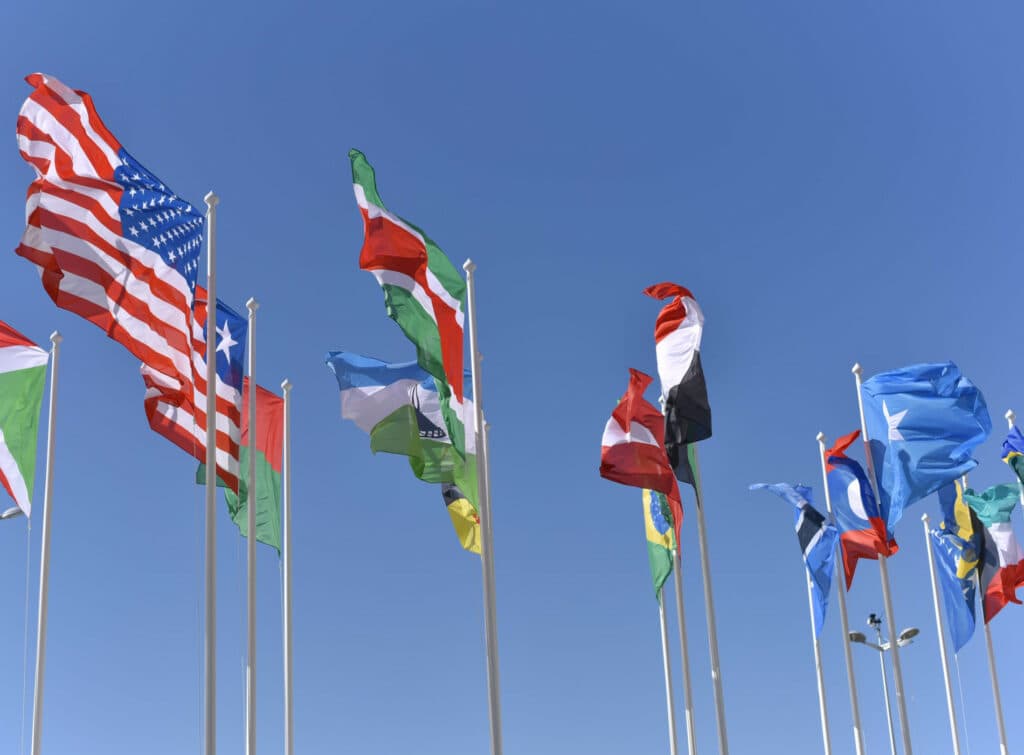
Violations of international law: What should third states do?
The responsibilities of third states when other states violate international law.
States not only have an obligation to refrain from violating international law. They also have the duty to act if other states commit a violation. These obligations of third states include non-assistance to and non-recognition of a violation.
State responsibility for internationally wrongful acts extends to all states that violate or assist in the violation of a legal obligation. Hence a state may be guilty of committing a wrongful act by assisting another state in violating international law. For example, if Israel was to violate international humanitarian law (IHL), and Sweden was also failing in its duty to ensure respect for IHL, both could be held responsible.
Obligations of third states
International law sets out the obligations for third states. These obligations are triggered when a serious breach arises under what is known as a peremptory norm of general international law.
Peremptory norms are accepted and recognised by the international community of states as norms from which no derogation is permitted and which can be modified only by a subsequent norm of general international law having the same character.
Third states have obligations where peremptory norms are breached. These obligations include non-assistance and non-recognition:
Non-assistance: The obligation by third states when addressing a serious breach is to “not render aid or assistance to the responsible state in maintaining the situation so created.”
Non-recognition: States have an obligation not to recognise as lawful a situation created by a serious breach of international law arising under a peremptory norm. Nor may they render aid or assistance in maintaining that situation. This obligation applies to “situations” created by these serious breaches. For example, where a state attempts to acquire sovereignty over territory through the denial of the right to self-determination of peoples, other states have an obligation to refrain from affording formal recognition of the situation and also to refrain from taking steps that would imply such recognition.
Obligation of non-recognition
The obligation of all states not to recognise as lawful a situation created by a serious breach of international law is confirmed by Article 41(2) of the Draft Articles on State Responsibility. This obligation arises from substantive rules of conduct that prohibit what has come to be seen as intolerable, because of the threat it presents to the survival of states and their peoples and the most basic human values.
The most common examples of peremptory norms noted in the International Law Commission’s Commentary refer almost exclusively to unlawful situations resulting from territorial acquisitions brought about or maintained by the threat or use of force.
Although the extent of peremptory norms is unclear, they are generally seen to cover the right to self-determination, the prohibition of racial discrimination and apartheid, and basic principles of international humanitarian law.
It is important to assess what the obligation of non-recognition actually entails in practical terms for third states. While the Draft Articles on State Responsibility do not elaborate the precise content of the obligation, the commentary explains that obligation “not only refers to the formal recognition” of situations created by the relevant breaches, but also prohibits “acts which would imply such recognition.” Practice also supports this broad approach to the obligation.
In addition to this general obligation of non-recognition, the Security Council and the General Assembly have referred to the following obligations:
- Not to recognise passports or travel documents issued by a regime;
- To withdraw consular representation;
- To withdraw diplomatic missions;
- To deny the legal validity of any public or official acts of the regime; and
- To refuse any membership of an international organisation.



